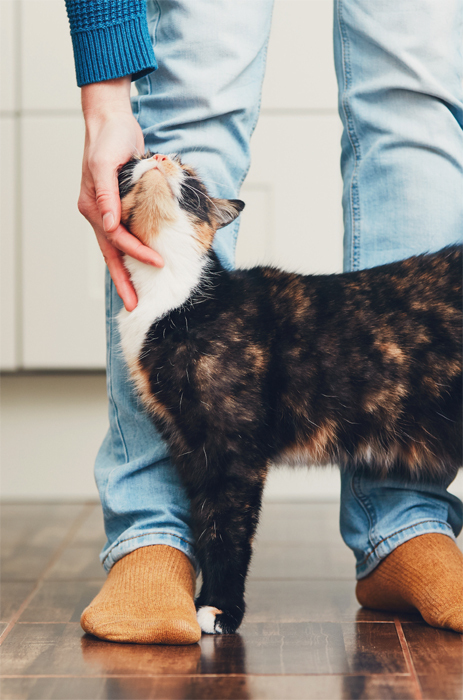Copyright 2020 by Rockridge Press, Emeryville, California
No part of this publication may be reproduced, stored in a retrieval system, or transmitted in any form or by any means, electronic, mechanical, photocopying, recording, scanning, or otherwise, except as permitted under Sections 107 or 108 of the 1976 United States Copyright Act, without the prior written permission of the Publisher. Requests to the Publisher for permission should be addressed to the Permissions Department, Rockridge Press, 6005 Shellmound Street, Suite 175, Emeryville, CA 94608.
Limit of Liability/Disclaimer of Warranty: The Publisher and the author make no representations or warranties with respect to the accuracy or completeness of the contents of this work and specifically disclaim all warranties, including without limitation warranties of fitness for a particular purpose. No warranty may be created or extended by sales or promotional materials. The advice and strategies contained herein may not be suitable for every situation. This work is sold with the understanding that the Publisher is not engaged in rendering medical, legal, or other professional advice or services. If professional assistance is required, the services of a competent professional person should be sought. Neither the Publisher nor the author shall be liable for damages arising herefrom. The fact that an individual, organization, or website is referred to in this work as a citation and/or potential source of further information does not mean that the author or the Publisher endorses the information the individual, organization, or website may provide or recommendations they/it may make. Further, readers should be aware that websites listed in this work may have changed or disappeared between when this work was written and when it is read.
For general information on our other products and services or to obtain technical support, please contact our Customer Care Department within the United States at (866) 744-2665, or outside the United States at (510) 253-0500.
Rockridge Press publishes its books in a variety of electronic and print formats. Some content that appears in print may not be available in electronic books, and vice versa.
TRADEMARKS: Rockridge Press and the Rockridge Press logo are trademarks or registered trademarks of Callisto Media Inc. and/or its affiliates, in the United States and other countries, and may not be used without written permission. All other trademarks are the property of their respective owners. Rockridge Press is not associated with any product or vendor mentioned in this book.
Interior and Cover Designer: Elizabeth Zuhl
Art Producer: Megan Baggott
Editor: Brian Sweeting
Production Editor: Mia Moran
Cover photograph by Shaina Fishman
Interior photographs: : Jovana Rikalo/Stocksy United
courtesy of Greg Murray Photography
ISBN: Print 978-1-64739-614-5 | eBook 978-1-64739-384-7
R0
THIS BOOK IS DEDICATED TO THE
MEMORY OF TILEI, THE LITTLE DEMON
CAT THAT STARTED MY JOURNEY INTO
UNDERSTANDING CAT BEHAVIOR.
CONTENTS
Welcome, and thank you for making the commitment to learn more about your cat. Whether youre a new cat owner or have had cats your entire life, this book will give you a deeper understanding of why your cats do what they do and what you can do to manage their behavior.
Cat behavior science is a relatively new field, and there are breakthroughs all the time. Sometimes what we thought was true yesterday may not be as accurate as what we learn today. Moreover, cats like to change the rules. But certain basics remain the same. In this book, we will look at some of those basics and show you how to use an understanding of cat behavior to give your cats their best life.
CAT OWNER TO CAT CONSULTANT
As a seasoned cat foster, professional cat sitter, and cat consultant with the International Association of Animal Behavior Consultants-Cat Division, I have a lifelong dedication to improving cats lives. I have worked with cats of all ages, temperaments, and health statuses for more than 25 years. My company has gone from being a dog walking/pet sitting company to a cat-only company with pet sitters who speak meow.
I got involved in cat behavior 25 years ago, long before it was even a topic. At that time there was a lot of misleading and inaccurate information out there on dealing with problematic cat behavior.
The first cat I owned as an adult started out as a cat from hell. Tilei was prone to redirected aggression, and I spent many of our days together nursing claw and bite marks. She even put me in the emergency room one night for a bad bite.
After that night, I spoke with my veterinarian. His advice at the time would draw gasps of horror in light of what we know today.
I knew there had to be a better way, so I set out on a mission to make Tileis life and mine better, safer, and happier. That decision would change the way that veterinarians would come to treat the tiny tiger I brought to their office.
Even today, reference guides for cat owners are relatively nonexistent, and much of the work on training domestic animals has been done with dogs. But cats dont take kindly to the balanced training that works with dogs. I soon realized that positive reinforcement of desired behavior had far better results.
Two publications were instrumental in shaping my observational skills and helping to mold my training style: On Behavior: Essays and Research by Karen Pryor , and The Cats Mind by Dr. Bruce Fogle. Together, those early writings helped me gain a deeper understanding of cat behavior.
This journey has taken me from novice cat owner to professional cat consultant, helping cat owners find solutions to cat behaviors that disrupt their lives. I hope this book serves as a resource for you when problem behaviors crop up. Dealing with those behaviors before they get out of hand is far, far easier than letting your cat learn and adopt bad kitty etiquette in the home.
C ats have inspired love and hate, and they were once treated as gods. The mystery of their evolution and the brilliant mutual relationship weve shared for thousands of years has led us to the modern cat we adore.
Only recently has it become understood that the cat has lived with humans much longer than the dog. This makes for a mysterious and fascinating exploration of understanding cat behavior in todays modern cultures. In this chapter, we will explore body language, cat sounds, and behavior at different stages of life. We will look at where the domestic cat came from, how man has exploited this relationship, and how the domestic house cat of today developed. We will also look at some of the very real differences between cats and dogs, breeds of cats, and even between sexes.
THE FUNDAMENTALS OF CAT BEHAVIOR
To understand cat behavior, we need to look at how cats have evolved, how they think, and how they perceive the world around them. We know dogs were domesticated for hunting, protection, and companionship. But how did cats come to associate with humans? In fact, have we ever truly domesticated them at all?















